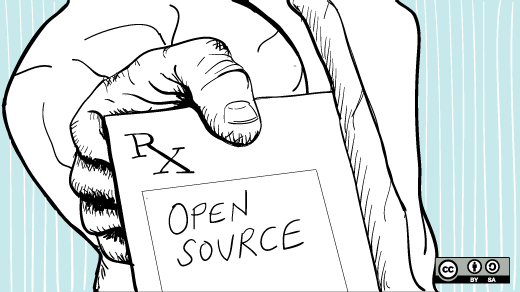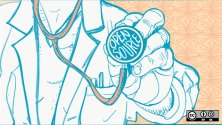Joanne Rohde is CEO of Axial Exchange, which creates mobile tools to help patients overcome the challenges of living with chronic disease. She believes healthcare must become more consumer driven and transparent, and she doesn’t believe that’s at odds with patient privacy.
Previously, she served as COO and Director of Health IT Strategy at Red Hat and CIO of UBS Investment Banking IT.
In her talk at the All Things Open conference in October she will expand on the insights she provides in this interview, from the place where healthcare and technology meet, to include why open source is the answer for better healthcare and how it does not compromise privacy and security.

There are so many reasons why patients are non-adherent to treatment plans. How does your technology help overcome those complex behavioral barriers?
You're right. There are a lot of reasons. People do not have either their conditions or their medications explained to them sufficiently. It's hard to find a trusted source of information. Chronic diseases require multiple medications. Other people need to be able to understand your medications and help you, depending on your illness and age.
Axial addresses these issues through mobile tools that let you learn about your disease with trusted information from the Mayo Clinic and helps you track both your medications and key wellness indicators; not only to remind you of when to take them, but to help you see the progress of your health.
Given the amount of change happening now in health care, what are the top three pieces of advice you’d give to someone starting off in the healthcare information space?
- Understand the complex economics of the healthcare system and what is driving change. Be clear about how your solution supports the changing economics in healthcare. Don't just extrapolate from what problem you want to solve. Sales are always complex, but particularly so in Healthcare IT.
- The benefits come from simplifying complex processes and information. Less is more.
- Make sure you are picking one sector of healthcare and go for it. I see a lot of websites that say, "For hospitals; For Providers; For Payers; For Patients." No start-up can serve all those masters. Pick a group that benefits and go after it.
How would Axial Exchange be different if it was proprietary? What are the specific benefits that come from it being open source?
We wouldn't be nearly as useful to our customers, the hospitals, if we were proprietary. They wouldn't understand how we share information, how we interface with their other systems, and who is benefiting from our software. We'd start to look like the incumbent vendors like EPIC and Cerner, the SAPs and Oracles of the healthcare industry, who seek to lock in the customers.
Can you give us a sneak preview as to what you will cover in your All Things Open talk (without giving too much away)?
I'm going to leave the open source talk to my former colleagues at Red Hat. Instead, I'm going to talk about how healthcare needs to become more consumer driven and transparent—and why that is not at odds with privacy and security. For an industry that makes up 17% GDP, the people who are supposed to be served by our healthcare system, that would be us and our families, have had very little say in their own care and what happens in the industry. That is changing... and can't happen fast enough.
Read more from the All Things Open speaker interview series.







1 Comment